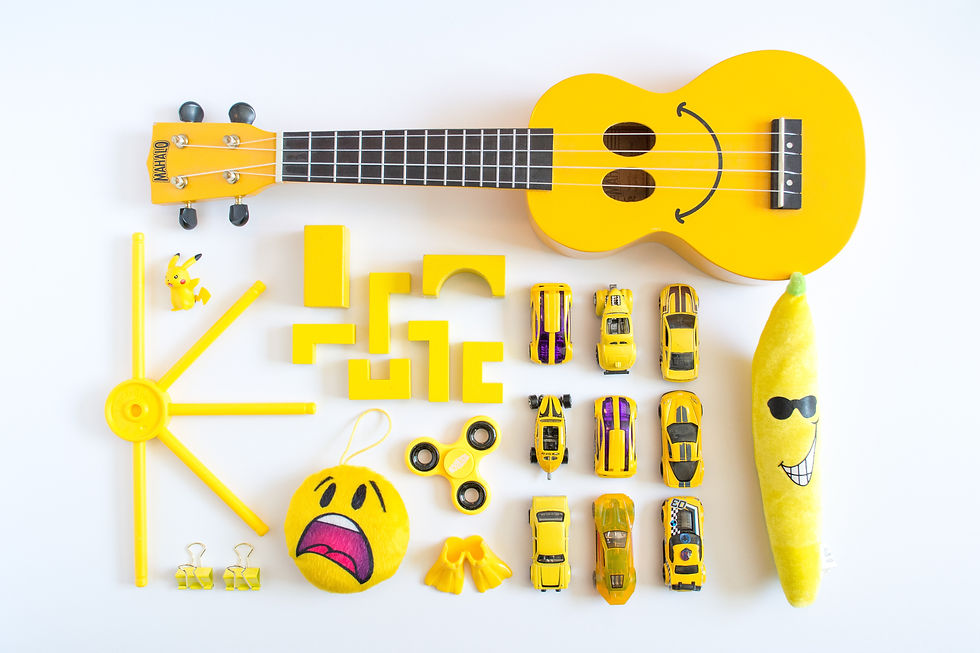5 Signs Your Child Could Thrive with Play Therapy
- Dr. Jamie N. Katz, Psy.D.

- Jul 28, 2025
- 3 min read
Are you noticing some unusual behaviors in your child? Many parents go through this phase, often wondering how best to support their kids. One encouraging option is play therapy, a method that allows children to express themselves and cope with their feelings in a playful environment. But how do you know if your child might benefit from this therapeutic approach? Let’s explore five exciting signs that could suggest it's time to consider play therapy!
1. Experiencing Emotional Distress
Does your child often appear sad, angry, or noticeably frustrated? These feelings are more common than you might think. Research indicates that 10% to 20% of children experience emotional distress at some point. Signs can include mood swings, frequent crying, or explosive outbursts.
Play therapy offers a way for children to articulate their feelings. For instance, they might use toys to illustrate scenarios that reflect their emotions, allowing them to discuss feelings they don’t quite understand. Over time, this can lead to improved self-awareness and emotional management.

2. Difficulty in Social Interactions
If your child seems withdrawn or hesitant to engage with peers, they may be struggling with anxiety or low self-confidence. Studies show that nearly 15% of children face social challenges, which can hinder their ability to form friendships.
Through play therapy, children can participate in role-playing exercises that model social interactions. For example, they might pretend to host a birthday party to practice sharing and collaboration. This hands-on experience not only builds essential social skills but also helps them cultivate confidence in their relationships with others.
3. Trauma or Major Life Changes
Significant life events, such as moving, parental divorce, or losing a loved one, can greatly impact a child's behavior. According to the American Psychological Association, around 43% of children face major transitions, and many exhibit changes like withdrawal, sleep issues, or reduced enthusiasm for activities they once loved.
Play therapy acts as a safe space for children to process these traumatic experiences. For instance, a child might construct a simple play scenario that reflects their feelings about a recent move. Engaging in this type of therapy allows kids to express their emotions at a comfortable pace, contributing to emotional healing.
4. Behavioral Issues
If your child frequently exhibits tantrums, defiance, or ongoing issues at school, it may be a sign they’re not effectively communicating their needs. Behavioral issues can result from stress or unmet emotional needs—more than 30% of parents report these types of issues in early childhood.
In play therapy, children can reenact experiences that trigger their behaviors. For example, they might use puppets to act out conflicts they have with peers, allowing the therapist to help them develop strategies for handling such situations. This proactive approach teaches children to cope better in real-life scenarios, leading to improved interactions at home and school.

5. Regression to Earlier Behaviors
Have you noticed your child returning to behaviors associated with a younger age, like bedwetting or excessive clinginess? Regression can signal that they are feeling overwhelmed. About 25% of children show some form of regression after experiencing stress or sudden changes in their environment.
Play therapy allows children to revisit earlier stages of development safely. They might use toys or art to explore their feelings about a stressful change. This can help promote healing and help them regain their emotional footing.
Final Thoughts on Play Therapy
Identifying these signs can be vital for your child’s emotional and mental health. Play therapy offers a unique, enjoyable way for children to explore their emotions, refine social skills, and heal from difficult experiences.
If you detect any of these signals in your child, it could be beneficial to reach out to a qualified child therapist. Early intervention can lead to better emotional health outcomes. Remember, prioritizing your child’s well-being is essential—play therapy may just be the key to unlocking their potential!
Each child is one-of-a-kind, and their path to emotional wellness will look different. Stay open to exploring various forms of support to enhance your child’s development and happiness!
Dr. Jamie N. Katz, Psy.D. is a licensed clinical psychologist practicing in Scottsdale.
480-766-3470




Comments